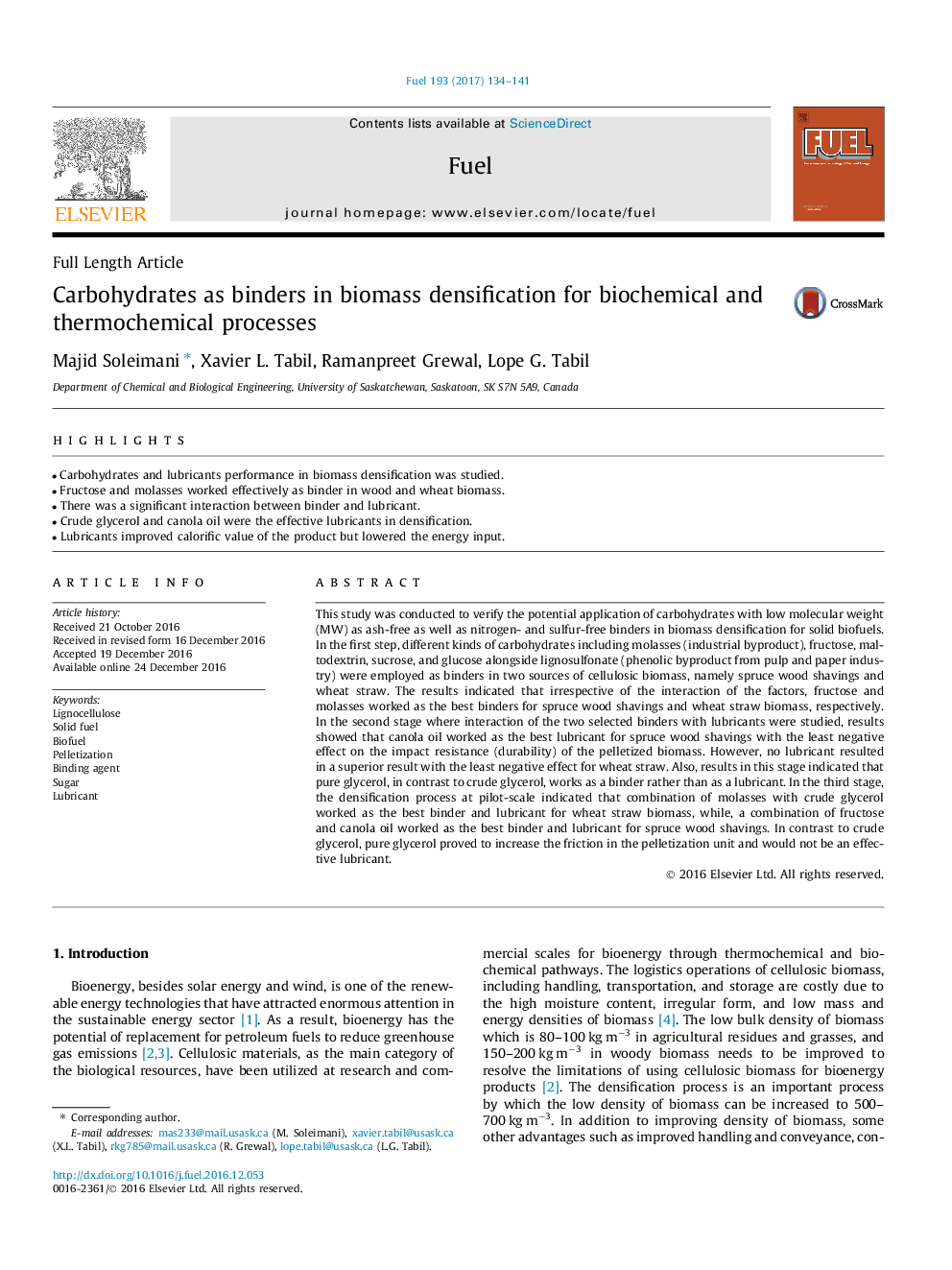| Article ID | Journal | Published Year | Pages | File Type |
|---|---|---|---|---|
| 6474904 | Fuel | 2017 | 8 Pages |
â¢Carbohydrates and lubricants performance in biomass densification was studied.â¢Fructose and molasses worked effectively as binder in wood and wheat biomass.â¢There was a significant interaction between binder and lubricant.â¢Crude glycerol and canola oil were the effective lubricants in densification.â¢Lubricants improved calorific value of the product but lowered the energy input.
This study was conducted to verify the potential application of carbohydrates with low molecular weight (MW) as ash-free as well as nitrogen- and sulfur-free binders in biomass densification for solid biofuels. In the first step, different kinds of carbohydrates including molasses (industrial byproduct), fructose, maltodextrin, sucrose, and glucose alongside lignosulfonate (phenolic byproduct from pulp and paper industry) were employed as binders in two sources of cellulosic biomass, namely spruce wood shavings and wheat straw. The results indicated that irrespective of the interaction of the factors, fructose and molasses worked as the best binders for spruce wood shavings and wheat straw biomass, respectively. In the second stage where interaction of the two selected binders with lubricants were studied, results showed that canola oil worked as the best lubricant for spruce wood shavings with the least negative effect on the impact resistance (durability) of the pelletized biomass. However, no lubricant resulted in a superior result with the least negative effect for wheat straw. Also, results in this stage indicated that pure glycerol, in contrast to crude glycerol, works as a binder rather than as a lubricant. In the third stage, the densification process at pilot-scale indicated that combination of molasses with crude glycerol worked as the best binder and lubricant for wheat straw biomass, while, a combination of fructose and canola oil worked as the best binder and lubricant for spruce wood shavings. In contrast to crude glycerol, pure glycerol proved to increase the friction in the pelletization unit and would not be an effective lubricant.
